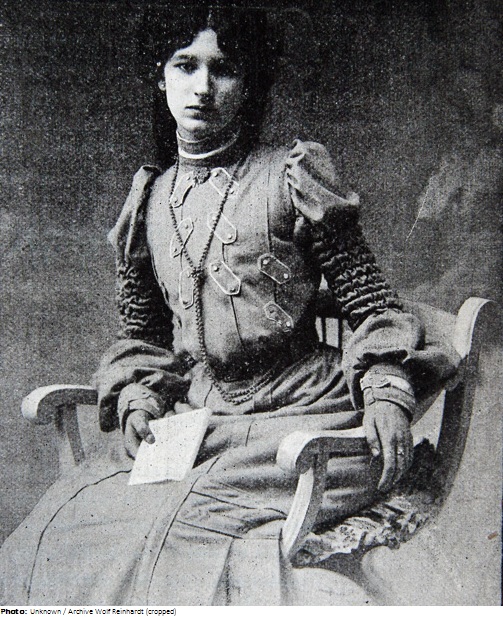
| Roles | Competed in Olympic Games |
|---|---|
| Sex | Female |
| Full name | France Thérèse Louise•Darget Savarit |
| Used name | France•Darget Savarit |
| Born | 26 December 1886 in Pontivy, Morbihan (FRA) |
| Died | 26 August 1965 (aged 78 years 8 months) in Limeil-Brévannes, Val-de-Marne (FRA) |
| NOC |  France France |
France Darget, now barely remembered, was famous during the “Belle Époque” among the literary circles in Tours. This had much to do with the quality of her poems, as well as the way she recited them, in a style of older and more established poets. Her father, a career officer, was also a spiritualist and author of a book with financial advice. She never attended a public school but, like other bourgeois children, went to a private school, where she was taught music, art and literature. The young poet was not older than 10 years of age when she was launched by the Tours newspapers, and quickly her notoriety reached the well-read circles of Paris, and she became a prominent person in the literary and artistic Tout-Paris.
In 1901, Savarit was just 14-years-old when a first collection of her poems, previously printed in newspapers, was published. The poems attracted the attention of well-known authors. She even was awarded a gold medal by the National Academy of Sciences, Literature and Arts of Bordeaux. She wrote poems about the volcano eruption in Martinique, the Franco-Prussian war, the firefighters of Tour, and the Queen Semiramis of Babylon. Due to her conservative background and audience, her poems and ballads become more reactionary. She also began to write stage plays, and perform herself. In 1908, she got married and moved to Paris. For her anthology “Les Matinales”, she received the Prix Davaine of the Academie Française. She also founded the theater company “Le Coryphée”. Her second son, Christian Savarit, was to become a famous TV presenter under the pseudonym Claude Darget.
Her play Les Thermopyles – a piece in one act in verses, with sports interludes – was originally written in 1921 for the Calliope Charissi, a Greek dancer who performed with her eleven children. In 1929, the play was staged in the Arena of Vallières. A local newspaper describes the setting: “On the track will be a faithful re-creation of the Olympic Games in Greece: racing, jumping, pugilism, archery and disc launch. This important staging, which is only possible in the open air, will bring together no less than 60 performers.” On March 2, 1940, the work, which deals with the battle between the Greek cities and the Persians during the Second Persian War, was broadcasted by Radio Paris.
| Games | Discipline (Sport) / Event | NOC / Team | Pos | Medal | As | |
|---|---|---|---|---|---|---|
| 1924 Summer Olympics | Art Competitions |  FRA FRA |
France Darget Savarit | |||
| Literature, Open (Olympic) |